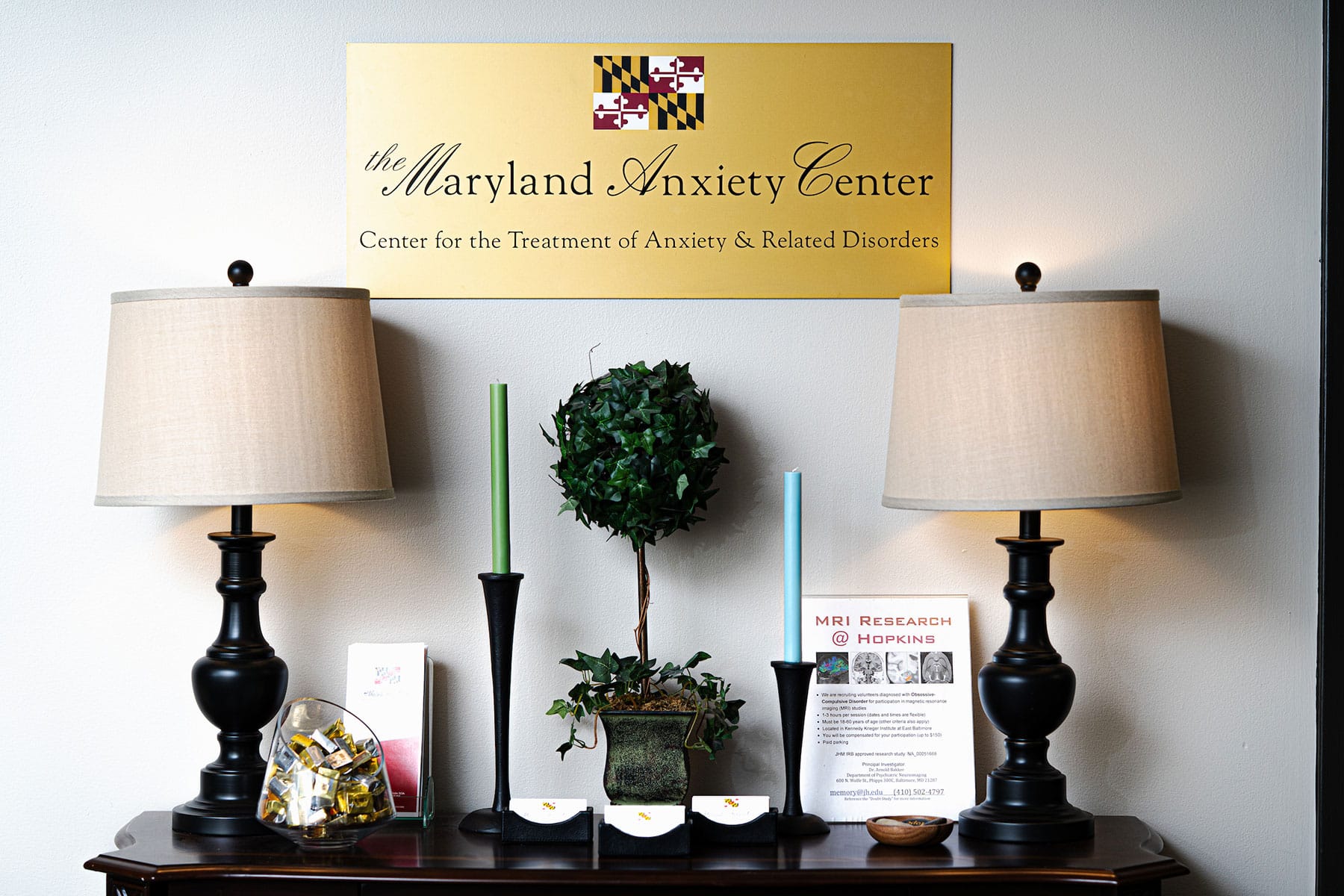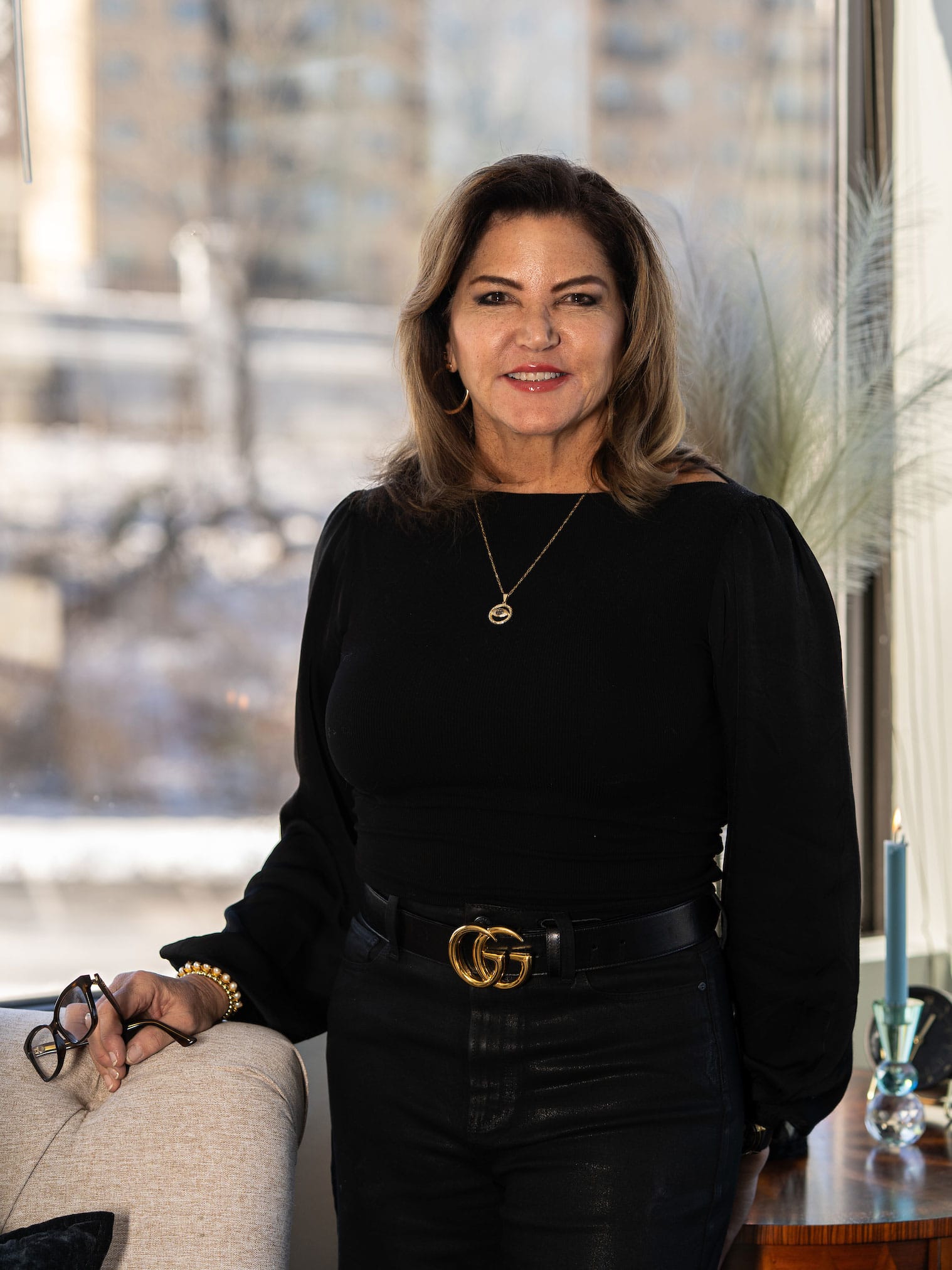
When you contact The Maryland Anxiety Center you will be screened briefly over the phone. If you are an appropriate match for the services offered at The Maryland Anxiety Center, you will be scheduled for an initial evaluation with the Center’s director.
The initial appointment will consist of a thorough psychosocial & diagnostic evaluation. It is important that your therapist learn as much about you, your condition & your personal history as possible in order to provide you with the best possible care. You will also have the opportunity to ask questions and discuss any concerns you may have.
After your initial assessment, your therapist will provide psycho-education regarding your specific diagnosis, treatment and the treatment rationale. From there you will be better able to make an informed decision as to whether CBT is right for you. Even though research supports CBT as the most effective treatment for anxiety & related disorders it may not be for everyone. Your therapist will work with you to tailor your treatment to best meet your needs and will offer referrals if you decide you’d prefer a different type of treatment approach (such as supportive, interpersonal or psychodynamic therapies).
Once you have received the appropriate diagnosis & have been educated regarding that diagnosis, have a thorough understanding of what CBT is & the treatment rationale, you will begin treatment planning with your therapist. The relationship between you and your cognitive behavioral therapist is collaborative. While your therapist is an expert on anxiety, related disorders & treatment, you are an expert on “you” and your specific symptoms. A strong therapeutic alliance is crucial for therapeutic gain and is a collaborative effort.
Following your evaluation, psycho-education & treatment planning, you will discuss a time to meet with your therapist on a regular basis. It is most typical to meet once a week, but some people prefer other options such as once every two weeks or more frequent visits at first. Some people opt to come in for several days a week for the first week or two for what is called, “intensive therapy”. There are several reasons why someone may choose this option. Sometimes a person feels debilitated by their symptoms and would like to jump start treatment initially and taper down to once a week or less after that first week or two. Others may travel a long distance for therapy and may want to complete therapy faster. For example, they may prefer to meet several days for a short period of time that would be equivalent to meeting once a week for 14 weeks or so.
After your treatment is complete, you will receive a relapse prevention session or two & will plan for follow-up care.

 The Maryland Anxiety Center was founded by Andrea G. Batton, LCPC with a vision of creating a practice where clinicians and staff work cohesively and collaboratively with patients to provide optimal psychological care. The Maryland Anxiety Center specializes in the treatment of anxiety and related disorders from a cognitive behavioral perspective, the gold-standard and most effective treatment for such conditions.
The Maryland Anxiety Center was founded by Andrea G. Batton, LCPC with a vision of creating a practice where clinicians and staff work cohesively and collaboratively with patients to provide optimal psychological care. The Maryland Anxiety Center specializes in the treatment of anxiety and related disorders from a cognitive behavioral perspective, the gold-standard and most effective treatment for such conditions.